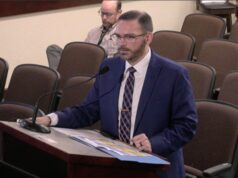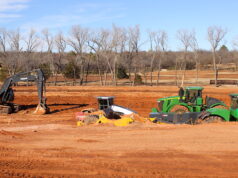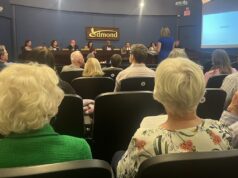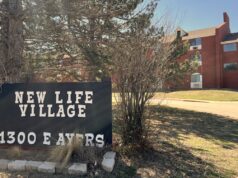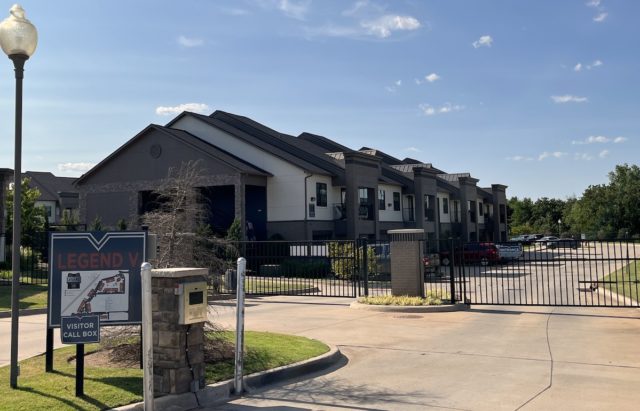

With apartment complexes nearing maximum occupancy and Edmond’s largest employers struggling to fill vacant staff positions, members of the Edmond City Council believe the city is facing a housing shortage.
“When you haven’t built an apartment complex in more than 10 years, our average new homes are more than $400,000, and our largest employers in town — our two biggest hospitals, Edmond Public Schools and the City of Edmond — are having a hard time finding employees, I think those are all signs that you have entered an affordable housing crisis,” said Ward 2 Councilman Josh Moore, himself a property developer.
The City of Edmond currently has 29 open job listings on its website. Edmond Public Schools has more than 170 open educator and support staff positions, Superintendent Angela Grunewald said at the district’s August board meeting.
“I don’t know that we’ve ever sat at Aug. 1 and said, ‘We’re fully staffed.’ That just doesn’t happen on Aug. 1,” Grunewald said. “But when we’ve sat here at Aug. 1 with openings, we always had an applicant pool to draw from. Our problem this year is we are sitting here at Aug. 1 with openings, and our applicant pool is very small.”
Ward 1 Councilman David Chapman, also a developer, said that without more diverse housing options in the city, college graduates will leave Edmond to live in communities with more available housing.
“Students that have graduated from college and they’re 24 years old, they will struggle to live in Edmond,” Chapman said. “We’ve got to have their vitality, we’ve got to have their talent, we’ve got to have their energy. We’ve got to find a way to house them here and create an environment so that they’ll stay.”
‘We have a reputation that it’s hard to do it here’
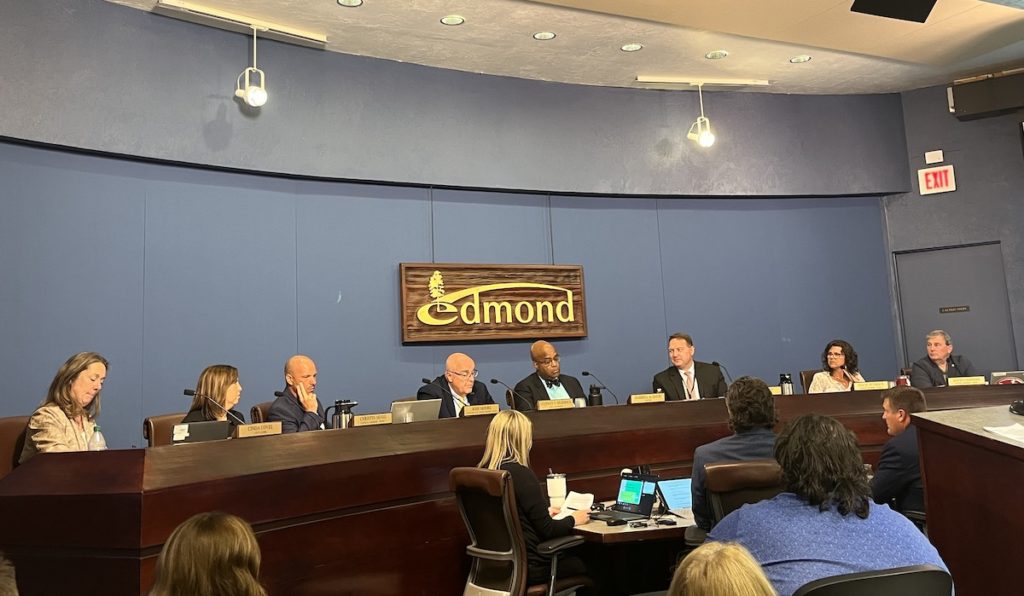
Throughout the year, Moore and Chapman have delivered a string of presentations in an effort to raise public awareness of what they call Edmond’s housing crisis. Data show that more than 6,000 single family homes have been built in Edmond since 2012, when the latest apartment complex in the city — Legend V — was fully completed.
As Edmond continues to grow in population, more apartment complexes need to be built, Moore said.
“As we grow, we should be growing all types of housing that we need, and that’s one portion that is not keeping up,” Moore said.
As of June 30, 336 single family building permits have been approved by the City of Edmond this year, with an average estimated cost of about $446,000 each, according to a report from the City of Edmond Building Services Department. In 2021, the average estimated cost on a single family building permit was about $421,000.
Moore and Chapman’s presentation also indicates that 52 percent of Edmond’s labor force works in service industries, like health care, education and hospitality, while 11 percent of Edmond’s labor force work in retail trade — jobs that do not pay enough to purchase $400,000 homes. Those statistics are credited to November 2021 reporting from the U.S. Bureau of Labor.
Additionally, near maximum occupancy rates in apartment complexes have made it difficult for people to find homes in Edmond, forcing them elsewhere.
“There’s a couple of different companies that put out market reports each quarter, and then they’ll have annual reports. Consistently, for at least 20 years, we’ve maintained a 94 to 96 percent occupancy,” Moore said. “And the other 4 percent are usually units that people are moving in and out of or being worked on.”
Two multifamily housing complex proposals were approved by the Edmond City Council last year, but both were ultimately halted amid proposed referendum petitions. The Spring Creek mansion block homes development, which was slated to contain 276 apartments, was withdrawn after the developer, landowner and the City Council agreed to a public vote on whether the city should buy the 22-acre property abutting Hafer Park and dedicate it to the city’s park system. More than 81 percent of Edmond voters approved a 12-month 0.25-cent sales tax for the purchase. (That decision eliminated the motivation for a group of citizens who had collected signatures for a referendum petition to repeal the multifamily zoning and development permit.)
A proposed complex with 301 apartments located north of Memorial Road and west of the I-35 Frontage Road was also halted under the pressure of a referendum petition. The rezoning referendum on the issue will likely be on the Nov. 8 general election ballot this year. However, the proposed deal between the property owner and development company, Case & Associates, has already been dropped, meaning the question will be functionally irrelevant.
Moore said he worries referendum petitions opposing multifamily developments are becoming a pattern in Edmond that could force developers to take their housing proposals elsewhere.
“No doubt, we have a reputation that it’s hard to do it here. This is a community that has done referendum petitions, so the fact is, a company like Case and Associates, they can do a project anywhere around the country,” Moore said. “There’s a certain amount of frustration that they’re going to put up with, and they’ll just move to another market.”
‘We didn’t come back to Edmond for a full blown fight’
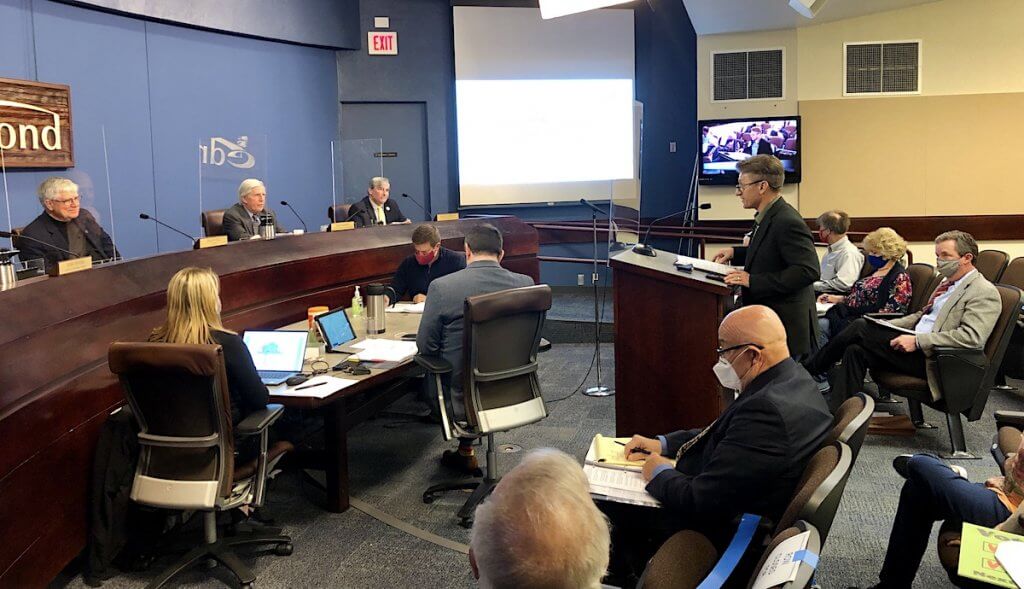
Attorney Todd McKinnis — who has represented many developers and development companies during his 28 years practicing law in Edmond — disagreed with Moore’s concern, stating that anti-development referendum petitions have only happened on a few occasions.
“I think this was the third or fourth time, so if you look at it just from a statistical time period, I don’t think it’s that common,” McKinnis said. “And I think that Hafer Park was a unique situation, and the one on I-35 was just collateral damage, so I don’t see it as just this constant concern.”
In fact, during the July 11 Edmond City Council meeting, Richard McKown, the developer behind the halted Spring Creek mansion block homes development, had an amendment approved to the PUD on the northwest corner of Kelly and West Edmond Road, extending the land south of the property to allow for a 250-unit apartment complex development called Kelly Krossing. The property was already zoned multifamily.
“We successfully amended existing settlements. We didn’t come back to Edmond for a full blown fight,” McKown said. “That was really expensive, and we weren’t ready to get into another one.”
McKown said the amendment on the Kelly Krossing PUD allows him to add 50 more apartments to the complex — reaching 250 units total — and maintain the property’s open space by raising buildings on the interior up to three stories tall.
McKown said his development is for “the underserved market” of one-occupant households.
“We’re building 250 luxury, market-rate apartments at 2nd and Kelly, and they’re going to be beautiful, and they’re going to be a great asset to the neighborhood,” McKown said.
McKinnis, who serves as McKown’s attorney, said he believes the location of the proposed complex played a role in why there has been no conflict with this development.
“We had some zoning out there, but we had to expand it at 4th and Kelly, and there was no opposition. No comment. Nothing,” McKinnis said. “Cynically, I think that’s because certain groups of people in Edmond think, ‘Well, that’s where multifamily should be — out there on the west side.'”
Between securing building permits and building the complex itself, McKown said the anticipated completion date for Kelly Krossing is two and a half years away.
‘I don’t want another 100,000 people in our town’
Dan O’Neil, who served two terms as Edmond’s mayor from 2007 to 2009 and from 2019 to 2021, holds the position of secretary of the Edmond Neighborhood Alliance. O’Neil said he thought McKown’s proposed development at Spring Creek had “good designs” and that his designs are “not just a building with 50 to 100 apartments in it.”
“I thought what he proposed by Hafer Park wasn’t bad,” O’Neil said. “I mean, I’m not a big fan of apartments, all things considered.”
O’Neil praised the location of McKown’s proposed Kelly Krossing development at 2nd Street and Kelly Avenue and said it avoided opposition because “there’s not a lot of angst you associate with it.”
“Nobody’s going to care, because there’s no people with vested interest in that location,” O’Neil said. “That’s why it’s good. There’s no nice neighborhood next to it.”
O’Neil and attorney Lydia Lee, a director at ENA, were the proponents of a 2017 referendum petition which opposed a mixed use commercial and multifamily residential PUD on the land abutting Hafer Park, which would have contained 325 apartments.
Matt Thomas, ENA’s vice president, and Beth Crounse, an ENA advisor, were the proponents of the 2021 referendum petition that added pressure to McKown’s decision to withdraw his proposed Spring Creek mansion block homes development at the same property.
Asked what Edmond city officials should do to provide more housing and where he believes that growth should be concentrated, O’Neil rejected the idea of substantial growth in Edmond.
“I’m sorry, I don’t want another 100,000 people in our town,” O’Neil said. “We don’t have the infrastructure to support it. We don’t have the water capacity to support it.”
Ward 3 City Council member Christin Mugg said City of Edmond officials have planned for the city’s growth, as outlined in the East Edmond 2050 plan.
“We’re planning for that growth and have been planning for it,” Mugg said. “I mean, that’s why we’re building a $300 million water treatment facility expansion.”
Chapman: ‘A tired, pathetic narrative.’
Members of the Edmond City Council routinely hear negative narratives from citizens surrounding the potential effects of multifamily housing complexes on their community, but those narratives are inconsistent with statistics, Moore, Chapman and Mugg said.
“That is a tired, pathetic narrative that we have developed — in that a certain class of people live in this type of housing,” Chapman said.
Moore identified common narratives surrounding the topic of multifamily housing: that a surrounding area’s crime rate will increase, that property values will decrease, that traffic will increase and that schools will become overcrowded.
“We do keep crime rate statistics around all areas of town, and it doesn’t match up with the fear and the concerns that we hear on that,” Moore said.
Moore said property value typically rises with more density, which multifamily housing complexes bring.
“Where you have activity just by nature tends to be where more people want to be, and property values actually go up,” Moore said.
In their presentations, Moore and Chapman say concerns regarding overcrowded schools are not consistent with statistics. On average, they say, complexes house about 17 students grade K-12 for every 100 apartments.
“Building a multifamily apartment complex, or some other multifamily structure, is going to increase the property value,” Mugg said. “Property taxes are where the school gets (local) money, so it’s actually helping the school by giving them more money.”
The only grievance borne from statistics involves traffic, one of Edmond residents’ biggest gripes. Developers are required to complete traffic studies for housing complexes with more than 100 apartments, and additional residents mean additional traffic.
Still, Moore said rejecting multifamily housing complexes has unintended consequences for the entire Edmond community.
“You’re taking away housing for a majority of our workforce in Edmond that we need to be able to live here and provide services and work in our community,” Moore said. “When we turn away that housing, all we’re doing is hurting ourselves.”









